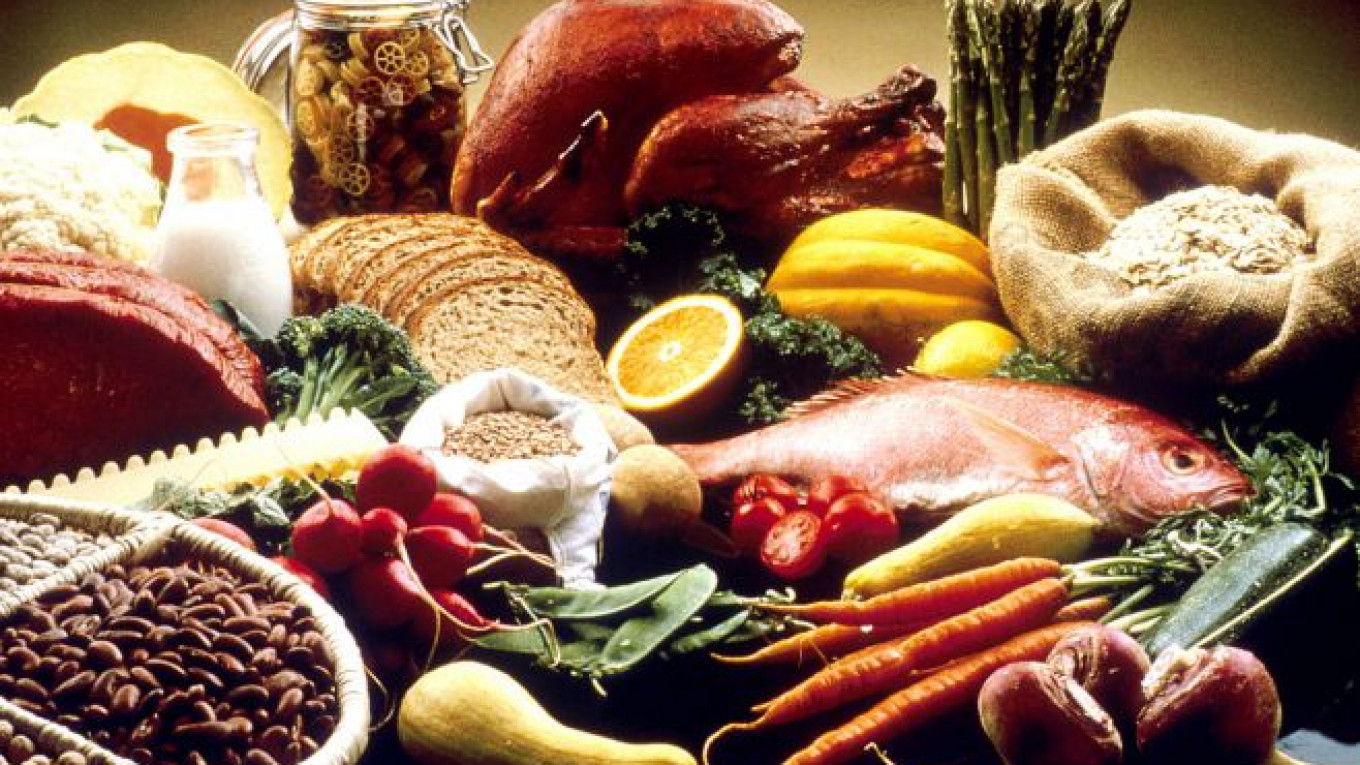Балова́ть: to spoil
Several residents of the somewhat narrow circle of language geeks that I inhabit sent me an article about the reappearance of Russian words that are "markers" of poverty. It's a nice article, and possibly a valid hypothesis. But I'm not convinced. For example, the writer says that the word лакомиться (to have a treat, to feast on) disappeared for about 10 years but has re-emerged to describe enjoying what should be an ordinary meal: С пенсии покупаю себе курицу полакомиться. (I use my pension to buy myself a chicken for a treat.) But the problem is: Did the word лакомиться really disappear for a decade? And is that a real marker of poverty, or the sign of a woman who just loves a chicken dinner?
I don't know — but in any case, the article reminded me of a wonderful assortment of words to describe one of life's greatest pleasures: eating.
Лакомиться describes the enjoyment of any kind of delicacy. Most of the time it's food: Люди, которые лакомятся шоколадом каждый день, живут дольше тех, которые его вообще не едят. (People who enjoy some chocolate every day live longer than people who don't eat it at all.) But occasionally the delicacy is figurative: Я лакомился этой достойной наградой за мои победы. (I savored the worthy reward for my victories.)
The verb has a related noun — лакомство (delicacy). This usually means a sweet: Коломенская пастила — это забытое русское лакомство. (Kolomna pastila is a forgotten Russian confectionary.) But it can mean anything delicious: Черная икра — лакомство царей! (Black caviar is food fit for a tsar.) But it has a different meaning in the pet shop: Наши собаки отлично обучались методом поощрения за лакомство. (We trained our dogs really successfully using the method of treat rewards.)
Somewhat confusingly, there's another related noun — лакомка (gourmand, i.e., someone who enjoys good food). This often refers to someone with a sweet tooth — сладкоежка — but also anyone who knows and loves good food. He's not just a good eater: Он был лакомка, не просто обжорлив. (He was a gourmand, not just a glutton.)
Лакомка is also the name given to Wednesday during Масленица (the week before Lent): На лакомки тещи приглашали на блины зятьев с женами. (On Gourmand Wednesday, mothers-in-law used to invite their sons-in-law and their wives for bliny.)
To help you keep this straight: Лакомка лакомится лакомствами на лакомке. (A gourmand enjoys delicacies on Wednesday during Pancake Week.) See? Easy-peasy.
You may also hear the word деликатес (delicacy) to describe any luxury food or prepared dish. Он всем деликатесам предпочитает сушёную рыбу. (Of all the delicacies in the world, he prefers dried fish.)
Russians are always a bit disappointed the first time they enter an American delicatessen and find bagels with a shmear instead of luxury foods. But in Russia, English speakers are surprised that you don't become a gastronome (a person who loves good food), but go into one — гастроном — to buy your groceries.
To sidestep some of the confusion caused by words borrowed from the French, you might use the homegrown word баловать (to spoil) to describe treating yourself or others to something especially tasty. Летом работодатели балуют своих сотрудников фруктами и мороженым. (During the summer, employers spoil their workers with fruit and ice cream.)
Sound like your office? Yeah, right. Реальность не балует нас такими хорошими новостями. (Reality doesn't spoil us with such good news.)
Michele A. Berdy, a Moscow-based translator and interpreter, is author of "The Russian Word's Worth" (Glas), a collection of her columns.
A Message from The Moscow Times:
Dear readers,
We are facing unprecedented challenges. Russia's Prosecutor General's Office has designated The Moscow Times as an "undesirable" organization, criminalizing our work and putting our staff at risk of prosecution. This follows our earlier unjust labeling as a "foreign agent."
These actions are direct attempts to silence independent journalism in Russia. The authorities claim our work "discredits the decisions of the Russian leadership." We see things differently: we strive to provide accurate, unbiased reporting on Russia.
We, the journalists of The Moscow Times, refuse to be silenced. But to continue our work, we need your help.
Your support, no matter how small, makes a world of difference. If you can, please support us monthly starting from just $2. It's quick to set up, and every contribution makes a significant impact.
By supporting The Moscow Times, you're defending open, independent journalism in the face of repression. Thank you for standing with us.
Remind me later.








